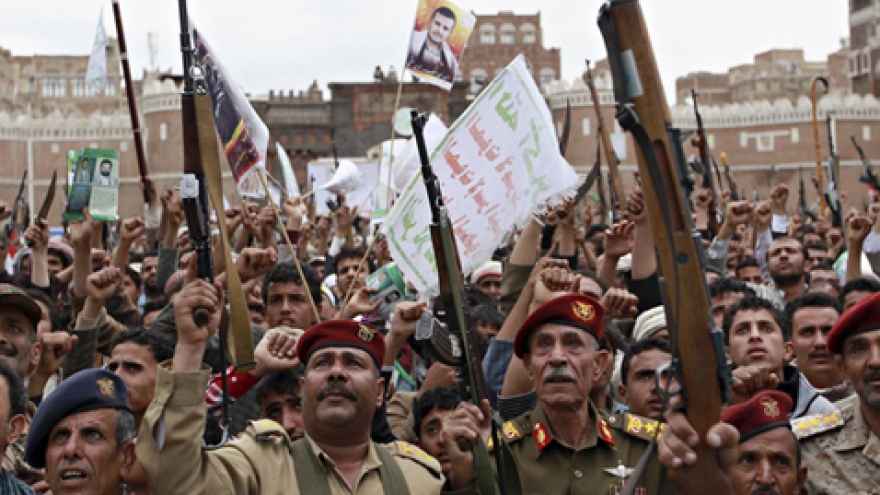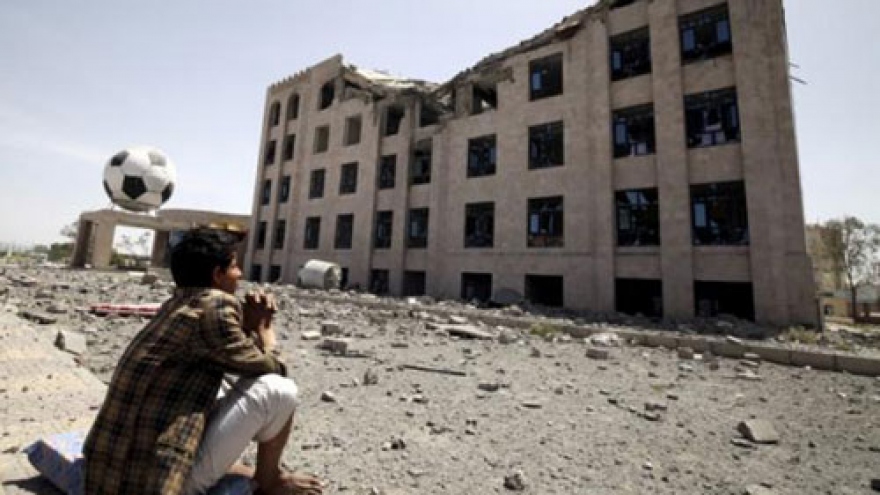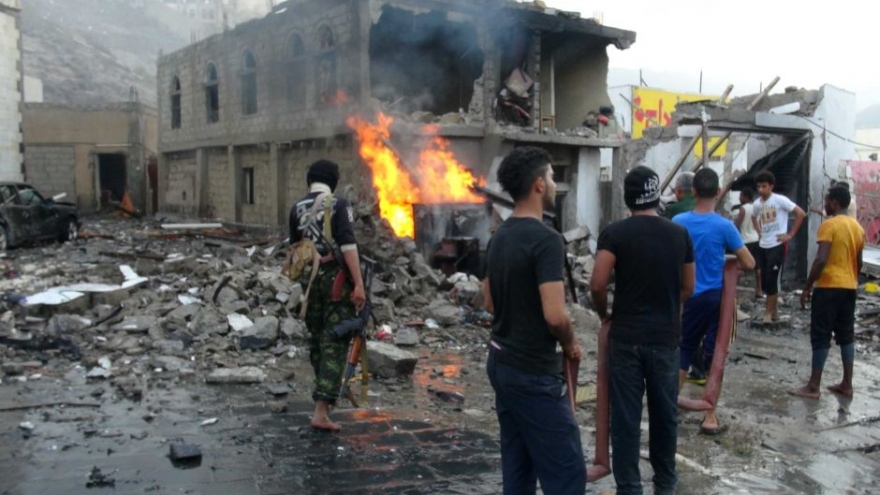Warring Yemen sides begin truce, warn against violations
Rival sides in Yemen's year-long conflict began a tentative truce overnight on April 10 saying they were committed to the halt in hostilities despite pockets of deadly fighting in the hours leading up to it.
The conflict between the Yemeni government, backed by Saudi Arabia, and its Houthi rebel enemies has killed more than 6,200 people and triggered a humanitarian crisis in one of the Arab world's poorest countries.
A halt in fighting from April 10 midnight (2100 GMT) precedes peace talks set to begin on April 18 in Kuwait.
A spokesman for a Saudi-led military coalition, which has been carrying out air strikes over the past year, urged the Iran-allied Houthis to respect the halt in violence which he said the Yemeni government and alliance would adhere to.
"But if there is any violation of this ceasefire, we will have the right to retaliate, to assess the situation at that time and take whatever steps are necessary to stop these violations," Brigadier-General Ahmed al-Asiri said by telephone.
 |
"This truce is in its early stages, violations may occur in the beginning, but we hope the next few hours will see more discipline towards the ceasefire," Yemen's foreign minister Abdel Malek al-Mekhlafi told the channel from Riyadh.
He added events were being monitored to see if they were systematic violations requiring retaliation.
In his comments to Reuters earlier, coalition spokesman Asiri said Yemeni military officials and some militia representatives had met over the past two days in southern Saudi Arabia to prepare for the ceasefire and had signed agreements on how it would be implemented and monitored.
The rival sides had formed committees to observe the halt in hostilities and facilitate the delivery of humanitarian aid, he said.
During the halt in fighting, the military alliance will continue to carry out intelligence, surveillance and reconnaissance, he said, and monitor the Saudi-Yemeni border, territorial waters and airspace.
A spokesman for the Houthis and their allies said they were also committed to the truce but also retained the right to respond if it was broken by the other side.
Hours before the fighting was due to stop, heavy battles flared between forces loyal to President Abd-Rabbu Mansour Hadi and Houthi fighters in al-Maton, north of Sanaa, residents said.
In the central Bayda province, battles in the al-Sawadiya and al-Zaher districts killed more than 20 people on Sunday, local officials and residents said, and fighting continued in Taiz.
The United Nations, which is involved in efforts to end the conflict, hopes the current cessation in hostilities will lead to a more concrete, formal ceasefire with confidence-building measures.
In the capital Sanaa, controlled for the last 18 months by the Houthis, residents said they desperately wanted this attempt at peace to succeed after two rounds of talks failed last year.



